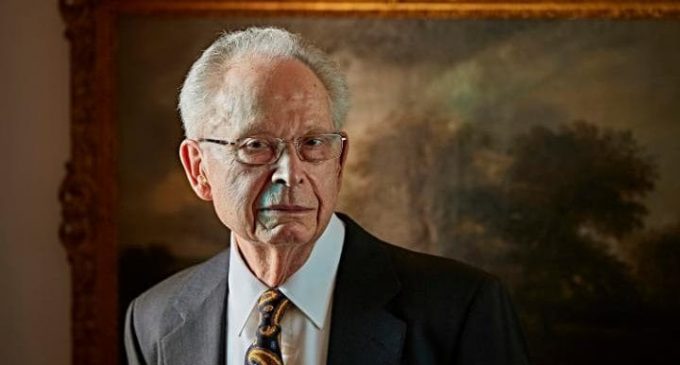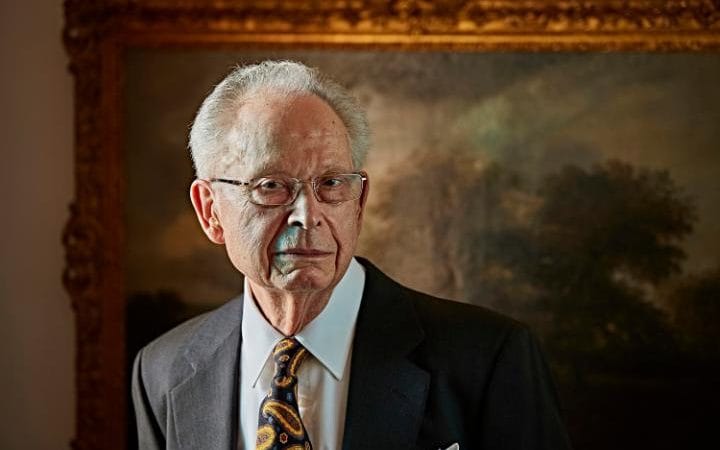The Beatles’ accountant 50 years on: ‘They were scruffy boys who didn’t want to pay tax’

In The Beatles’ 1966 song Taxman, George Harrison berates Harold Wilson’s proposed 95pc “supertax” on the UK’s highest earners. “If 5pc appears too small,” he sings bitterly, “be grateful I don’t take it all.”But there was one man to whom the Fab Four were genuinely thankful for keeping their Revenue bill down: their accountant, Harry Pinsker.Many people claim to have been in The Beatles’ inner circle, but Pinsker truly was. From 1961 to 1970 he oversaw their finances, set up their companies, helped buy their homes, and even signed off their grocery shopping.ADVERTISINGinRead invented by Teads“I first met them in my office – they were just four scruffy boys,” recalls Pinsker, now 87. “I hadn’t heard of them – few people had outside Liverpool. That changed.”
Pinsker was born in Hackney, east London, and harboured ambitions to be a doctor or solicitor. But he lost months of education through war (he was evacuated to Norfolk and Cornwall), racism (Truro College said it “could not take a Jewish boy”) and illness (he spent days in intensive care with peritonitis).
“Missing schooling meant I failed Latin, necessary for medicine or law,” he says. “So I became an accountant.”
On leaving school in 1947, Pinsker was articled to the London office of Bryce Hanmer & Co, which audited theatrical clients including Arthur Askey and impresario Jack Hylton. “I met my childhood heroes – Flanagan and Allen, Jimmy Edwards. It was wonderful,” he says.
In Liverpool, Bryce Hanmer’s clients included local furniture store owner Harry Epstein – and when in 1961 his elder son Brian began managing pop groups and wanted to formalise their accounts, the Merseyside office referred him to their “showbiz” colleagues in London – and Harry Pinsker.
“Brian Epstein was charming, and The Beatles were polite and did whatever he told them – although they were naïve. I set up a company, with all of them directors.”
Pinsker – who also audited Epstein’s other rising stars Cilla Black and Gerry and The Pacemakers – quickly proved himself adept at solving problems. “When Brian got The Beatles flats in London, they needed a phone, but you had to wait six months.
“I was doing a government audit so top secret even I didn’t know what the business was – I later discovered it was guided missiles. But I rang the GPO and said this top secret work needed telephones at four addresses. So The Beatles got their phones within a week.”
Pinsker’s expertise protected the band’s assets with a range of creative but perfectly legal ideas to keep down their tax bill. “We created a songwriting company called Lenmac, which learned counsel deemed an investment company whose revenue was defined as unearned income and subject to higher tax.
“I saw it as a trading company, arguing that if a newspaper was used to wrap fish and chips, it was still a newspaper, so Lennon and McCartney’s songs would always still be songs – and therefore represented earned income. The Inspector of Taxes agreed.”
But he found he had to warn “the boys” against profligacy. “Early on, the press called them millionaires. I had to clarify to them that their millions were earnings, not assets, and they needed to set aside a lot of those earnings for tax.
“They were never happy with that – that’s why George wrote Taxman. They’d been poor boys, who’d worked hard and made money, and now someone was trying to take it away.”
Source: The Beatles’ accountant 50 years on: ‘They were scruffy boys who didn’t want to pay tax’




There are no comments at the moment, do you want to add one?
Write a comment